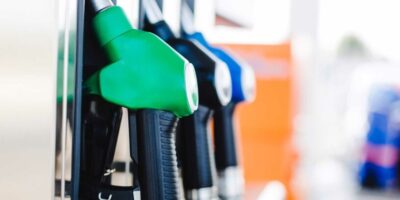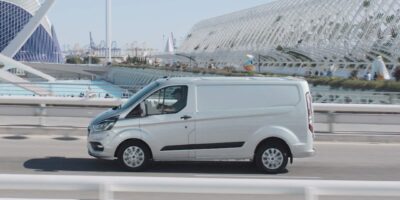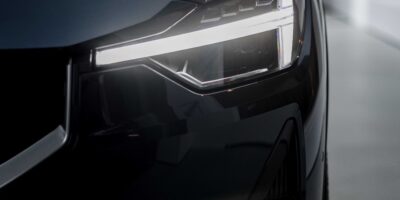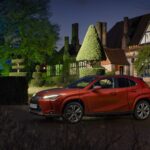13 mps and Lord Lilley have endorsed a ground-breaking new report from the APPG for Fair Fuel for UK motorists and UK hauliers. It brings to the attention of decision makers that UK’s 37m drivers also want clean air to breathe. But at the same time to show that the current unilateral Government policies for road users, whilst on the surface seem laudable, are instead set to be damaging for the economy and the Nation’s role in ‘helping out’ with global climate change.
APPG Chair, Craig Mackinlay says: “The only thing that’s protecting the Government from electoral harm on this matter is the seeming Westminster consensus and lack of courage to stand up to the climate fanatics and say: enough! Sooner or later the public will rebel against this madness. Better to have the rational debate now before we fully embark on a failing and expensive experiment.â€
The Government should immediately remove the threat of the 2030 ban on the sales of new petrol and diesel vehicles. Instead, they should incentivise the move to clean fuels by motivating industry and entrepreneurs to develop technologies that will not impact adversely on the economy, drivers, or businesses. Allow the market to dictate what clean fuel technology is best and affordable for all drivers, not through a very costly, divisive ineffective Government mandate.
The APPG Report Highlights:
7 Practical Recommendations to lower emissions without banning new diesel and petrol vehicles by 2030.
A plethora of expert opinions on recent Government edicts and their effective ways to reduce emissions and avoid economic doomsday.
Several questions of the Government on behalf of UK’s 37m drivers as to the viability and cost of the Government’s unexpected target date to ban new fossil fuelled cars and vans in 2030.
A ‘cradle to grave’ review of Electric Vehicles compared to Petrol/Diesel driven Transport. Highlighting safety, production, electricity supply and practicality of evs.
Whether the Government has truly recognised a fair and equitable replacement for £35bn of annual Fuel Duty and VAT.
The largest ever survey of road user opinion that back a series of recommendations from the APPG as to meeting the needs of reducing vehicle emissions without adopting the Government’s highly unpopular road user policies.  50,000 took part.
A better way to lower vehicle emissions than using ineffective ‘Pay to Pollute’ policies and cliff edge vehicle sales bans.
MP Quotes Include:
The Chair of the APPG, Craig Mackinlay MP said: “In producing probably one of the most authoritative reports on the subject ever written, we have listened to thousands of road users, from cyclists, bikers, motorists, through to our vital frontline and essential much undermined commercial vehicle drivers.â€
“We have put together a range of recommendations to Government that are both constructive and economically viable to help reduce emissions without hurting 37m drivers or UK’s economy.â€
“It is imperative we bring the majority of the electorate along with us in the changes being demanded of them. Not using a ton of un-consulted millstones. It must be through consultation and consensus and a rational debate about the cost and alternatives. That will mean compromises on all sides of the green agenda. Above all, using common sense and practical, achievable solutions.â€
“We have shown evidence in this measured report that the current Government Road user transport plans are at best unwise and worst of all, ill-advised. It is not too late for a change of overall policy. A change that will be supported by the majority of the electorate, businesses, and all road users for a long time to come.â€
Sir John Redwood MP said: “There is a lot of common sense in the APPG Fair Fuel Report. Greener transport needs to work for the people it wishes to attract as users. You cannot get to work or run the children to school on a government target. Government needs to explain how these changes are going to be better, popular and affordable.â€
Julian Knight MP said: “This policy was wrong headed from the start, dreamt up in the kitchen diners of Notting hill, with no understanding of real people’s daily lives. It’s clear that the switch to electric will cause more environmental damage than running clean diesel. What’s more who is to say electric won’t be superseded soon making this whole costly charade a waste of time and money.â€
Andrew Lewer MBE, MP said: “This is a serious and well-researched report that should force policy makers to face facts and to level with the British public about the costs – to them – of bans on petrol and diesel vehicles and the timescale intended for this.â€
James Sunderland, MP said: “I welcome the recommendations of this report that highlights the need for a viable move to clean fuels that does not impact adversely on the economy, drivers or businesses. We must also ensure that all road users are involved in the development of road transport strategy and so I particularly support the idea of a Road User Consultative Group. I urge policy makers to consider very carefully the recommendations of this well-researched and informative piece of work by the Fair Fuel APPG.â€
Other quotes from 12 mps and a Lord include:
Steve Baker,
Sir Greg Knight,
Andrew Bridgen,
Philip Davies,
Bob Blackman,
Karl mccartney,
Graham Stringer,
Sir John Hayes,
Lord Peter Lilley
All quotes can be accessed at:
Https://fairfueluk.com/APPG-FFUK/4/
Https://fairfueluk.com/APPG-FFUK/6/
Howard Cox, Architect of the Report, Founder of fairfueluk and Secretary to the APPG said: “All common sense has been thrown out and cluelessly replaced by a set of virtual signalling policies, that have been overwhelmingly rejected by the majority of UK’s drivers. The APPG report shows that the economic recovery would collapse if fossil fuelled car use is squeezed through these needless cliff edge bans. Motorists did not vote for the Green Party in the 2019 General Election, but that is what we have got. The result being a deliberate insidious policy to use cyclists against drivers under the cover of a well-financed ill-informed emotive green agenda.â€
“Why hasn’t the Government produced a full post Covid recovery cost benefit analysis as to the impact of the 2030 ban and the highly unpopular push for us all to drive electric, on the economy, UK’s drivers, specifically low-income motorists and small businesses? Most of all, they must objectively demonstrate their policy will achieve lower vehicle emissions and be more beneficial than the mammoth cost of implementing the ban itself. What are they scared of, if they believe this policy is so right?
“Out of touch but we now learn is a diesel driver, Cop26 Government spokesperson Allegra Stratton underlines much of the negatives of driving Electric for herself and her family, yet at the same time is telling us to dump our valued petrol and diesel cars to join her virtue signalling Government’s ill-informed duplicitous crusade to simply look good at Cop 26. This Tory administration is oblivious as to what they are doing to hard working drivers, white van man, logistics and the humungous cost to the economy, all behind an opportunistic green agenda. None of this was in their election manifesto either, the betrayal of UK’s 37m drivers is more than shameful, it is political treachery. These policies will haunt Boris’s re-election chances in perpetuity.â€
The APPG Report has been produced by the APPG for Fair Fuel for Motorists and Hauliers, with considerable editorial and research input by its Editor Howard Cox, Secretary to the APPG and Founder of the fairfueluk Campaign.
Three-in-10 drivers so worried about narrow country lanes they deliberately avoid them
Three-in-10 motorists admit to deliberately steering clear of narrow country lanes and are prepared to take a detour of 16 miles or 25 minutes to avoid them, according to new research from one of the UK’s biggest car insurers, Ageas, and the RAC.*
As millions of Brits jump into their cars and head off on staycations in the countryside this summer, the figures highlight just how unnerved many drivers – especially those who live in towns and cities – are by Britain’s rural roads, which account for more than half of all those in the country.**
More than half of drivers (58%) say they find using narrow country roads stressful, a figure that rises to 76% for drivers who live in urban areas. The two biggest causes of stress, according to the research, are the difficulty of squeezing past other vehicles in tight spaces (62%) and the fear of colliding with another vehicle head on (61%).
But the etiquette of who moves out of the way is also high on drivers’ list of concerns about these types of roads. Having to try to reverse back to find a passing place (45%), the fear of meeting a tractor and not being able to pass (44%) and deciding who succumbs to back up to a passing place (37%) make up drivers’ top five stress factors. More than a third (36%) meanwhile say they think the default 60mph limit on country roads is just too fast to begin with, while 35% say they fear damaging their car.
The research suggests that some motorists are more vocal than others when it comes to deciding who has to reverse, with one-in-10 drivers admitting they’ve had an argument with another driver over who should go back when driving on a narrow country road.
But it is the detours that drivers are prepared to go to avoid the stress of rural lanes which is perhaps most surprising. On average, people are prepared to add 16 miles – more than a half marathon – to their journey if it means they can avoid driving down this type of road. They’d also be willing to add another 25 minutes to their drive – enough time to watch a whole episode of Eastenders.
City-dwellers are also much more concerned about narrow country lanes and go to longer distances to escape them. Three-quarters (76%) of these drivers say they find them stressful, of which 27% say they will always stick to wider main roads instead. What’s more, these drivers say they’d be willing to add 23 miles or 30 minutes to their journey to avoid them, 14 miles and 10 minutes more than their rural counterparts.
Robin Challand, claims director at Ageas Insurance, said:
“We understand that getting to your holiday destination can be stressful at the best of times. Between packing, long car journeys and hot weather, there’s a lot to get flustered about.
“Our research shows the type of roads we drive on can also be a cause of stress, with crashes and scrapes high on the list of people’s concerns, so we’re urging people to stay calm and – most importantly – stay safe this summer.
“Negotiating narrow rural lanes can be tricky, even for the most seasoned of drivers, but by following some simple tips and staying calm, you can avoid adding a damaged car to your list of things to get stressed about this summer.â€
RAC Breakdown spokesman Simon Williams said:
“With unprecedented numbers of drivers on the UK’s roads this summer, more and more people will find themselves squeezing down narrow country lanes to reach beaches and popular countryside spots – and these figures show just how uncomfortable many drivers are using doing this, especially those who are used to wider city roads with much better visibility.
“For any driver less confident with tackling rural lanes the message has to be to plan a journey properly before setting out, and drive at the right speed according to the nature of the road, even if the official limit is 60mph. We’d also advise not becoming too reliant on a car’s sat-nav – while ducking off a main road to shave off a few minutes might seem like a good idea, if you’re then faced with having to carefully negotiate a tractor and queue of vehicles coming the other way, any advantage is soon lost.â€
*Article Source https://media.rac.co.uk/







